Are You A Business Owner With Incomplete Books And Records Facing An IRS Audit?
Your business records are lost or damaged and now you get selected by IRS for an audit if your income tax returns. Just because you can’t back up all your business expenses with receipts does not mean that you lose deductions. Here is a case of a coin dealer who still prevailed despite his lack of sufficient receipts and records.
The Huzella Case
In a recently published Tax Court case, Thomas R. Huzella v. Commissioner, TC Memo 2017-210 (October 23, 2017), the taxpayer, Mr. Huzella who resided in Virginia, bought and sold coins on eBay. All payments he received for the coin sales were processed through PayPal and those payments were reflected on a Form 1099-K, Payment Card and Third Party Network Transactions, issued by PayPal. This Form 1099-K reported for calendar year 2013 aggregate payments of $37,013 from 399 separate payment transactions during the year.
Mr. Huzella has been collecting coins since 1958. His father also collected coins, and some of those coins eventually were gifted to or inherited by Mr. Huzella. He did not keep any records to establish his basis in any of his coins which the IRS regardless of how and when he acquired them. He also did not keep any of his receipts for his business expenses including internet costs, packaging and shipping costs.
Mr. Huzella’s 2013 income tax return was selected for audit. That audit was likely triggered by the 1099-K income that was reported by PayPal which was not reported on the taxpayer’s return. The IRS auditor increased Mr. Huzella’s gross income by the proceeds of the coin sales and gave no credit for any cost of goods sold or expenses he incurred in this activity. So the taxpayer ultimately appealed to the U.S. Tax Court seeking credit for cost of goods sold and business expenses that were denied.
Tax Code Requires Substantiation Of Expenses
Taxpayers bear the burden of proving that claimed business expenses were actually incurred and were “ordinary and necessary”. IRC Sec. 162(a). Taxpayers also bear the burden of substantiating expenses underlying their claimed deductions by keeping and producing records sufficient to enable IRS to determine the correct tax liability. INDOPCO, Inc. v. Commissioner, 503 U.S. 79, 84 (1992); Reg. § 1.6001-1(a), Reg. § 1.6001-1(e)). The failure to keep and present such records counts heavily against taxpayers’ attempted proof. John E. Rogers & Frances L. Rodgers v. Commissioner, TC Memo 2014-141.
But Unsubstantiated Expenses May Still Be Recognized Under The Cohan Rule
If a taxpayer with inadequate business records proves that he incurred certain expenses but cannot substantiate the exact amount, the Court in appropriate circumstances may estimate the amount allowable. George M. Cohan v. Commissioner, 39 F.2d 540, 542-544 (2nd Cir. 1930). Under this so called “Cohan Rule”, the Court “bears heavily…upon the taxpayer whose inexactitude is of his own making.” This means that the taxpayer must provide some reasonable evidentiary basis for the estimate. The Tax Court should then only allow you to deduct the least amount of money that you could have possibly spent. Although this may not be the entire sum you are claiming, it is better to get something than nothing when you do not have the receipts to back up your expenses.
Anti-Cohan Rule
But there are some types of business expenses that will not benefit under the Cohan Rule. The “Anti-Cohan Rule” found in IRC Sec. 274(d) requires taxpayers to produce receipts and logs in order to deduct expenses for business use mileage, entertainment and promotion and travel. The government added this provision to require substantiation because of the difficulty to estimate these items and the high level of scrutiny that such expenses include items that are not fully related to the business.
So Back To Mr. Huzella’s Case …
By applying the Cohan Rule, the Tax Court through the taxpayer’s testimony establishing a reasonable evidentiary basis for estimated business expenses, can find for the taxpayer deductions which ordinarily would be denied by IRS.
Mr. Huzella maintained no records of any kind to establish his cost or other bases in the coins that he sold on eBay. At trial he could not present any documentation from eBay to establish his acquisition cost for any of the coins but he was able to submit eBay records of his sales and listing transactions, which provide a detailed description of each item listed for sale. He also submitted coin catalogs from 2011 and 2013 and charts tracking the market prices of silver during 2010 to 2013. He testified that he turned over his inventory fairly quickly and that he had purchased fairly recently on eBay many of the items he sold there. The eBay sales records supported his testimony to some degree.
Evaluating Mr. Huzella’s testimony and the evidence as a whole, the Court found that he substantiated a cost of goods sold of $12,000. Furthermore, the Court also found he was entitled to deductions of $942 for PayPal fees, $2,188 for eBay fees, $600 for internet charges, $600 for postage and $100 for packaging costs.
What Should You Do?
Just because you fail to maintain adequate records or your records got lost or damaged should not mean that your business expenses are disallowed in an IRS audit. Taxpayers who hire an experienced tax attorney in audits and tax appeals who at the earliest opportunity introduces and applies the Cohan Rule should result in the least possible audit adjustments and avoiding costly litigation. Let the tax attorneys of the Law Offices Of Jeffrey B. Kahn, P.C. located in Orange County, Long Beach and other California locations get you the best possible result in your tax audit.

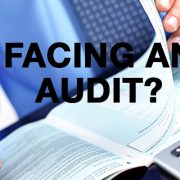
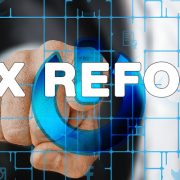
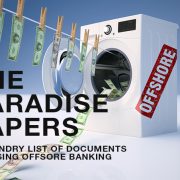
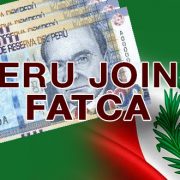
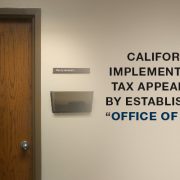





 Follow
Follow Follow
Follow